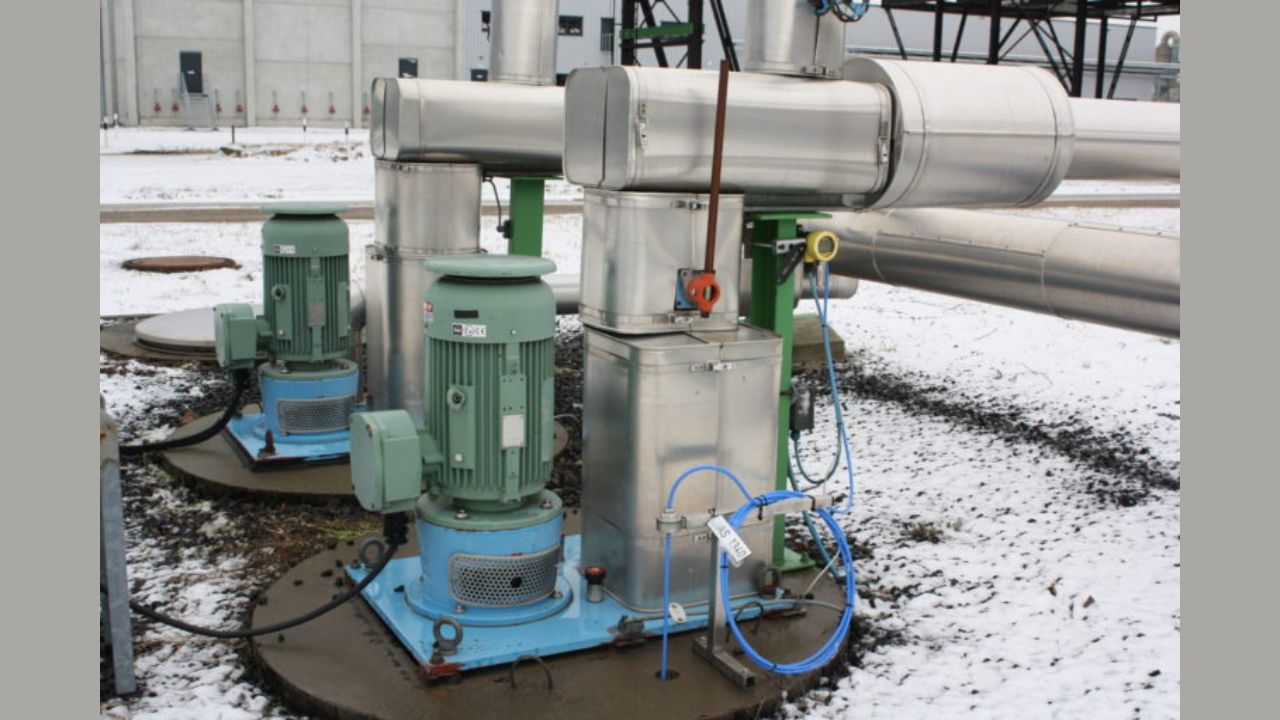The conventional approach consisted of renewing the underground pipe systems. The second solution concept was to install a pumping station at each plant. The slop products from the production plant and the rainwater and surface water produced are pumped into the central wastewater treatment plant via an existing pipe network on the pipe bridges. The contract was awarded to the second solution.
The PCK Refinery entered into discussions with various pump manufacturers. The composition of industrial wastewater can vary greatly, and corrosive substances can also enter the pits. For this reason, the minimum requirement for the material of the wetted parts was defined as Duplex 1.4462. The design temperature of 80 °C ruled out the use of submersible motor pumps. Ultimately, PCK specified sump pumps with a dry-installed IEC standard motor. The switch-on level for the pumps had to be selected in such a way as to prevent backflow into the inlet channels. This resulted in installation lengths of 2.5 to 5 m.
25 years of trouble-free operation of industrial wastewater pumps
The Swiss pump manufacturer Emile Egger was one of these potential suppliers. As a pump manufacturer specializing in liquids containing solids, Egger was able to win the technical contract. The patented Turo Vortex hydraulics has an impeller that is completely retracted into the housing with a free ball passage the size of the discharge diameter. Blockages can be virtually ruled out and coarse solids such as stones, branches, screws or other solid materials can pass through the pump without any failure. The pump is also self-sufficient and does not require any external supply such as sealing liquid. The shaft seal is a single acting mechanical seal located directly behind the impeller. The intermediate journal bearing above it are lubricated with a clean liquid and do not come into contact with the pumped liquid. The pumps are also frost-proof, and the journal bearings are protected against corrosion by a water-glycol mixture.
In addition to these technical advantages, the very positive operating experience with pit pumps already in use was also the reason for placing the order for a total of 48 pumps of this type with Egger in 1998. Two pumps were installed per sewage pumping station. The base load pump is operated via variable speed drive controlled by the liquid level. The second pump with a fixed speed serves as a reserve and as an overload pump, which is switched on in parallel during heavy rainfall.
After more than 25 years of operation, it can be positively stated that the Egger sump pumps of the SG design have proven their worth. Subsequently, Egger submersible pumps were also installed at other locations, including pits and tanks classified as Zone 0. Other very demanding applications followed, so that more than 100 Egger products are currently in use at the refinery.
In-house service centre completes the offer
This success story was crowned ten years ago with the establishment of the service support centre on the PCK refinery site. The service centre now consists of four people. As the availability of Egger products is very high and the failure rate very low, the Egger Service centre also repairs third-party products and supports the company’s main service base in Mannheim with repairs from northern Germany.
Source: Emile Egger & Cie SA



